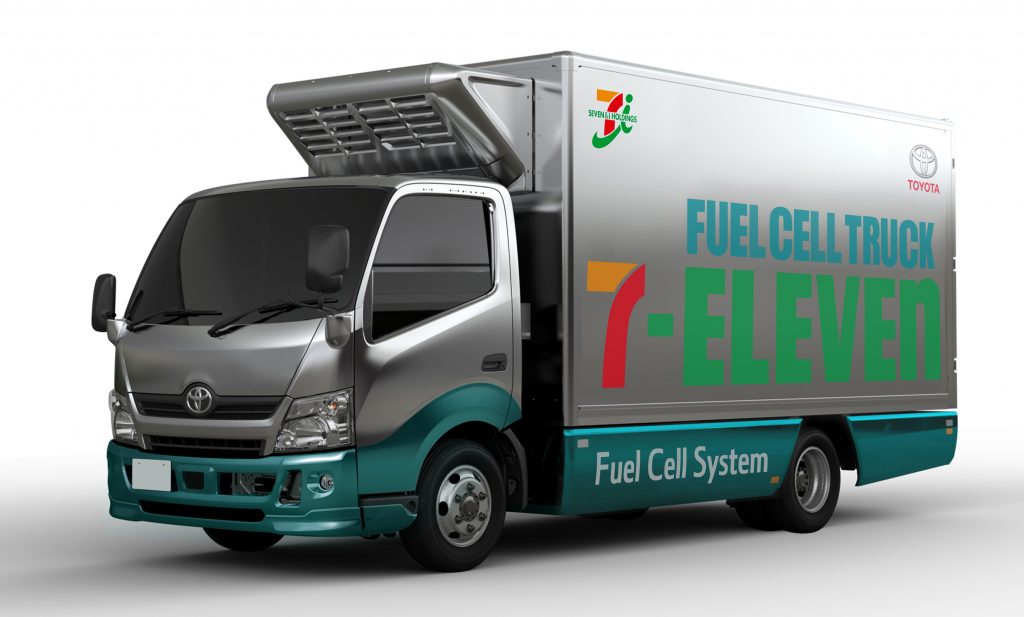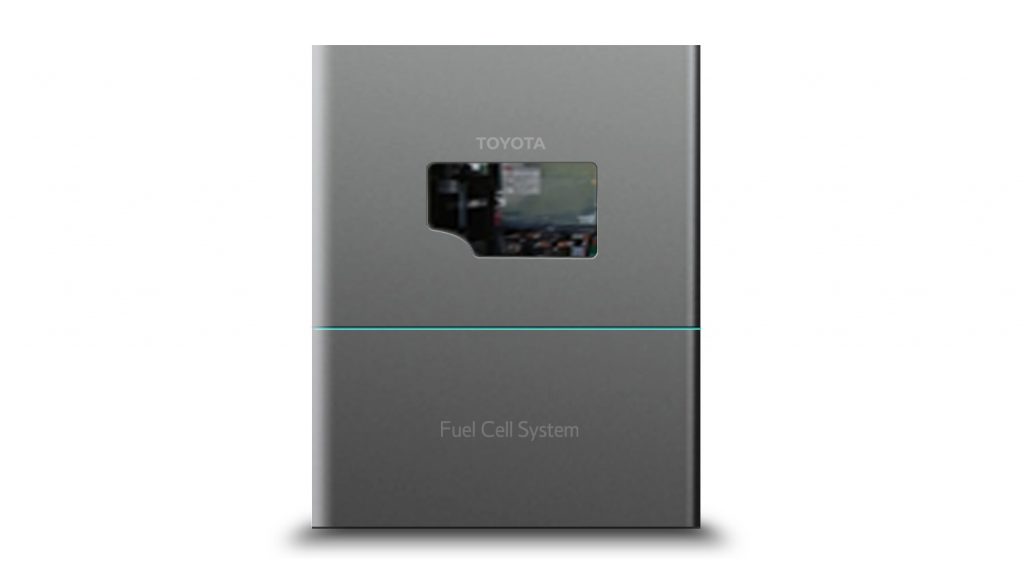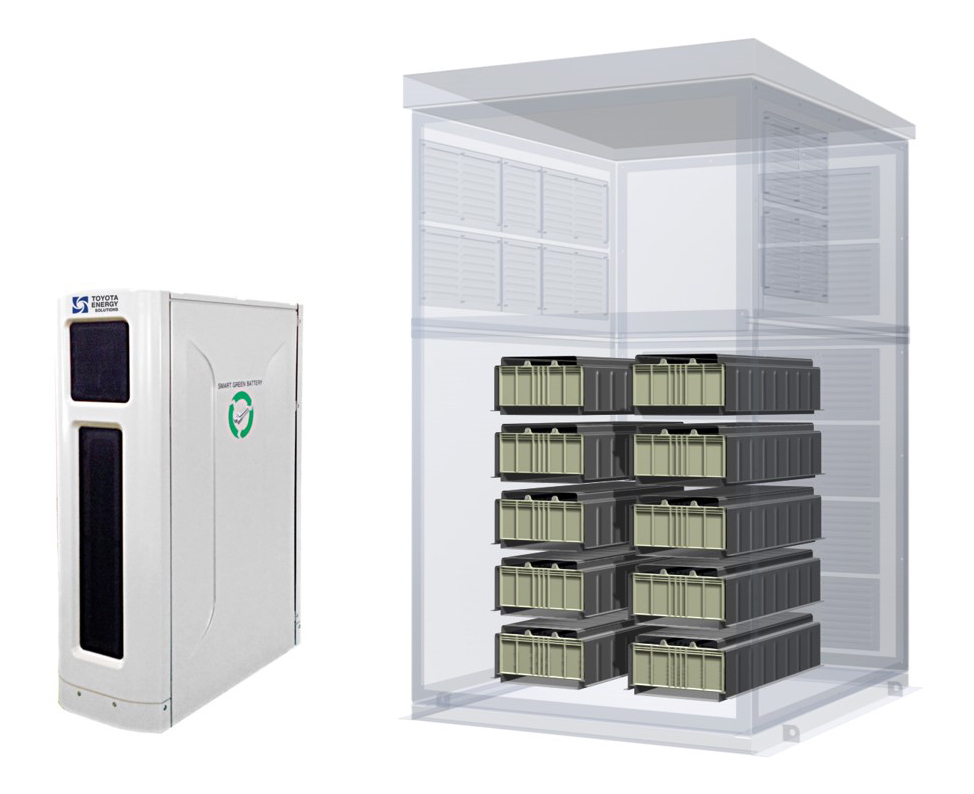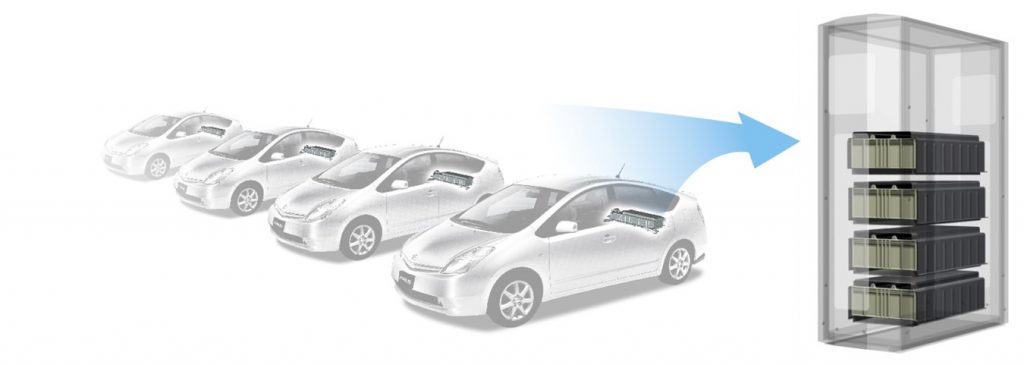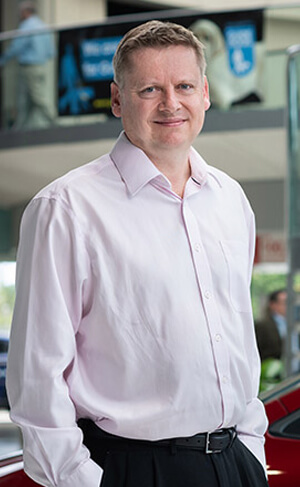Seven-Eleven Japan and Toyota to Launch Joint Next-Generation Convenience Store Project, Aiming for Greater Reductions in CO2 Emissions
- Project involves use of hydrogen fuel cell trucks and generators
- Promotion of CO2 emissions reduction and energy conservation in convenience store distribution system and operation
Seven-Eleven Japan Co Ltd (Seven-Eleven) and Toyota Motor Corporation (Toyota) have announced details of a joint project to reduce CO2 emissions.
Since the two businesses entered into a basic agreement in August 2017 on considerations towards energy conservation and reductions in CO2 emissions in store distribution and operation, Toyota has been looking at the role new fuel cell trucks and fuel cell generators can play. The project will be implemented in stages from 2019.
The project aims to introduce technologies and systems developed by Toyota in the running of Seven-Eleven stores and the company’s distribution services. Stationary fuel cell generators and rechargeable batteries will be introduced in the stores, managed centrally by building energy management systems (BEMS). This will increase the proportion of renewable energy and hydrogen-sourced electricity that is used. A new small fuel cell truck will be introduced to the distribution process, with the aim of zero emissions of substances of concern, including CO2.
The Seven & i group is addressing five key issues*. Regarding the non-wasteful use of products, ingredients and energy, Seven & i is seeking to expand use of renewable energy use in line with the objectives of the Sustainable Development Goals adopted by the United Nations in 2015. Specifically, the Group plans to increase renewable energy use in stores to 20 per cent and to reduce CO2 emissions by 27 per cent by 2030, compared to FY2013. Seven-Eleven is taking steps to reduce CO2 emissions throughout its supply chain to meet its goals, focusing on renewable energy.
On 7 December 2017, Seven-Eleven opened the environmentally and user friendly Seven-Eleven Chiyoda Nibancho Store as a flagship for these initiatives. A second such store, the Seven-Eleven Sagamihara Hashimotodai Itchome, opened on 22 May this year, where renewable energy accounts for 46 per cent of electricity use.
Toyota technologies and systems that use hydrogen will be introduced in stores and at distribution sites, with next generation stores making further use of renewable energy. Two small FC tricks are intended for introduction in the Tokyo metropolitan area around spring 2019, and next generation stores are expected to open from autumn next year.
The Toyota Environmental Challenge 2050, announced in October 2015, aims to help develop a sustainable society. Accordingly, Toyota is taking measures to reduce CO2 emissions by promoting efficient energy use and alternative energies, addressing global issues such as global warming, depletion of natural resources and energy challenges. The current joint project aims to reduce CO2 emissions and conserve energy in Seven-Eleven’s store operations and distribution, and intends to support the accumulation and verification of new technologies and knowledge, such as small FC trucks and FC generators.
The joint project details are set out below.
- Project overview
- The two companies will investigate ways to procure renewable energy and use energy efficiently, aiming to shift energy use in stores to renewables and low-carbon hydrogen.
- Rechargeable batteries and stationary FC generators will be installed in stores and small FC trucks will be introduced for deliveries to reduce CO2 Performance, costs, durability and CO2 reduction effects will be evaluated, with the aim of promoting further deployment.
Deployment plan
| Area | Item | Introductory Stores and Areas | Introduction Timing |
|
Store Operations | Stationary rechargeable batteries | Under consideration | Autumn 2019 |
| FC generators | |||
| BEMS | |||
| Chargers with power supply function | |||
|
Distribution | Small FC trucks | Tokyo metropolitan regions | Spring 2018 |
- Items to be introduced in stores
FC generator
- An FC generator will be in installed in the store, generating electricity from hydrogen for store use.
- Potentially boil-off hydrogen from the hydrogen station can also be used.
- Efforts will be made to use hydrogen energy effectively, aiming towards the use of low-carbon hydrogen.
|
Rated output | Approx. 10kW |
|
FC stack | Toyota Mirai fuel cell stack |
|
Manufacturer | Toyota Motor Corporation |
Stationary rechargeable batteries
- Rechargeable batteries for stable use of solar electric power, with weather-dependant output.
- When power generation exceeds store demand, the batteries will be charged. When there is a shortfall in the power generated, the batteries will discharge, increasing the proportion of renewable energy used in the store.
- End-of-life batteries from hybrid vehicles will be used as rechargeable batteries.
|
Capacity | 10kWh/unit (multiple units can be connected) |
|
Dimensions (mm) | Width 1,055
Depth 1,230 Height 1,767 |
|
Weight | Approx. 1,100kg |
|
Manufacturer | Toyota Energy Solutions Inc |
Building energy management system
- The BEMS controls the solar power generation, FC generators and stationary rechargeable batteries, optimally supplying power to the store, according to its power consumption status.
Charger with power supply function
- In addition to charging battery electric and plug-in hybrid electric vehicles, the chargers can supply electric power from BEVs, PHEVs and fuel cell electric vehicles to the store. When required, the charger can be operated with the BEMS to supply power to the store from a connected BEV, PHEV or FCEV, maintaining store operations. For example, this might contribute to the recovery of local services during an emergency or disaster.
|
Input/output during charging | AC 200V, 5kW/DC 50 – 450V
Supports rapid charging |
|
Power supply from vehicle to store | Max. 10kW |
|
Dimensions (mm) | Width 270
Depth 370 Height 1,600 |
|
Manufacturer | Toyota Industries Corporation |
- Items to be introduced in distribution (Tokyo metropolitan region)
Small FC Trucks
- The trucks, equipped with Mirai fuel cell units, emit no CO2 or other substances of concern during operation.
- The electricity generated by the FC unit powers the truck and its refrigerator/freezer unit.
- When the truck is stationary, the FC unit supplies generated electricity to the refrigerator/freezer unit.
- The truck will be equipped with an external power supply function, for high-output, high-capacity electric power supply (max. output 9.8kW, max. capacity 235kWh) can be used as a power source during an emergency/disaster.
|
Dimensions (mm) | Length 6,185
Width 2,180 Height 2,970 |
|
FC stack max. output | 114kW/155PS/153bhp |
|
Hydrogen storage mass | Approx. 7kg in three tanks |
|
Max. Payload | 3,000kg |
|
Cruising range | 200km (Toyota target – effective range, calculated by Toyota, when used in the patterns anticipated for this project) |
* Seven & i Group’s five key issues:
- Providing Social Infrastructure for an Ageing Society and Declining Population;
- Providing Safety and Reliability through Products and Stores;
- Non Wasteful Usage of Products, Ingredients and Energy;
- Supporting the Active Role of Women, Youth and Seniors across the Group and in Society;
- Building an Ethical Society and Improving Resource Sustainability Together with Customers and Business Partners.
ENDS

